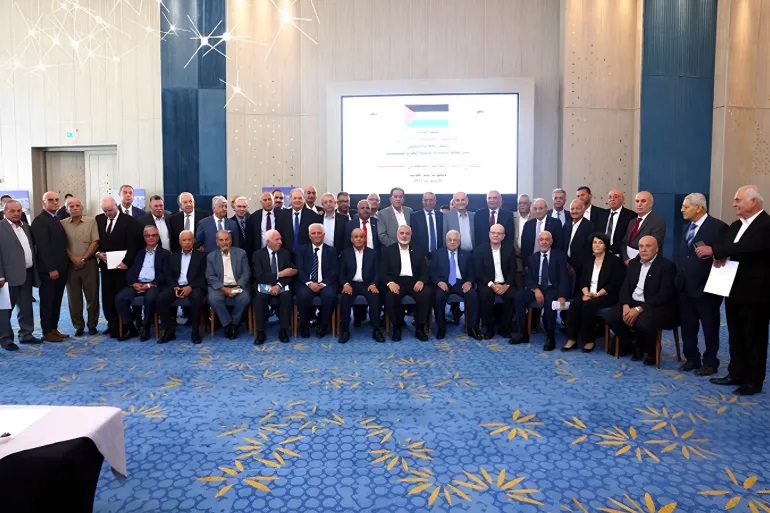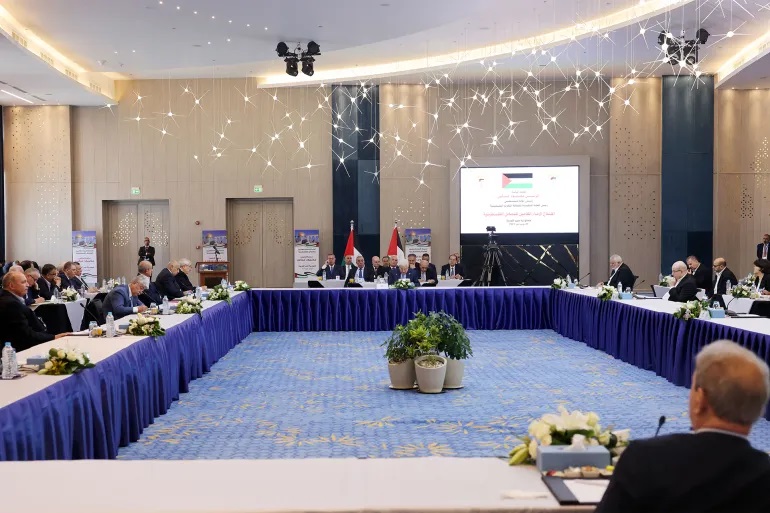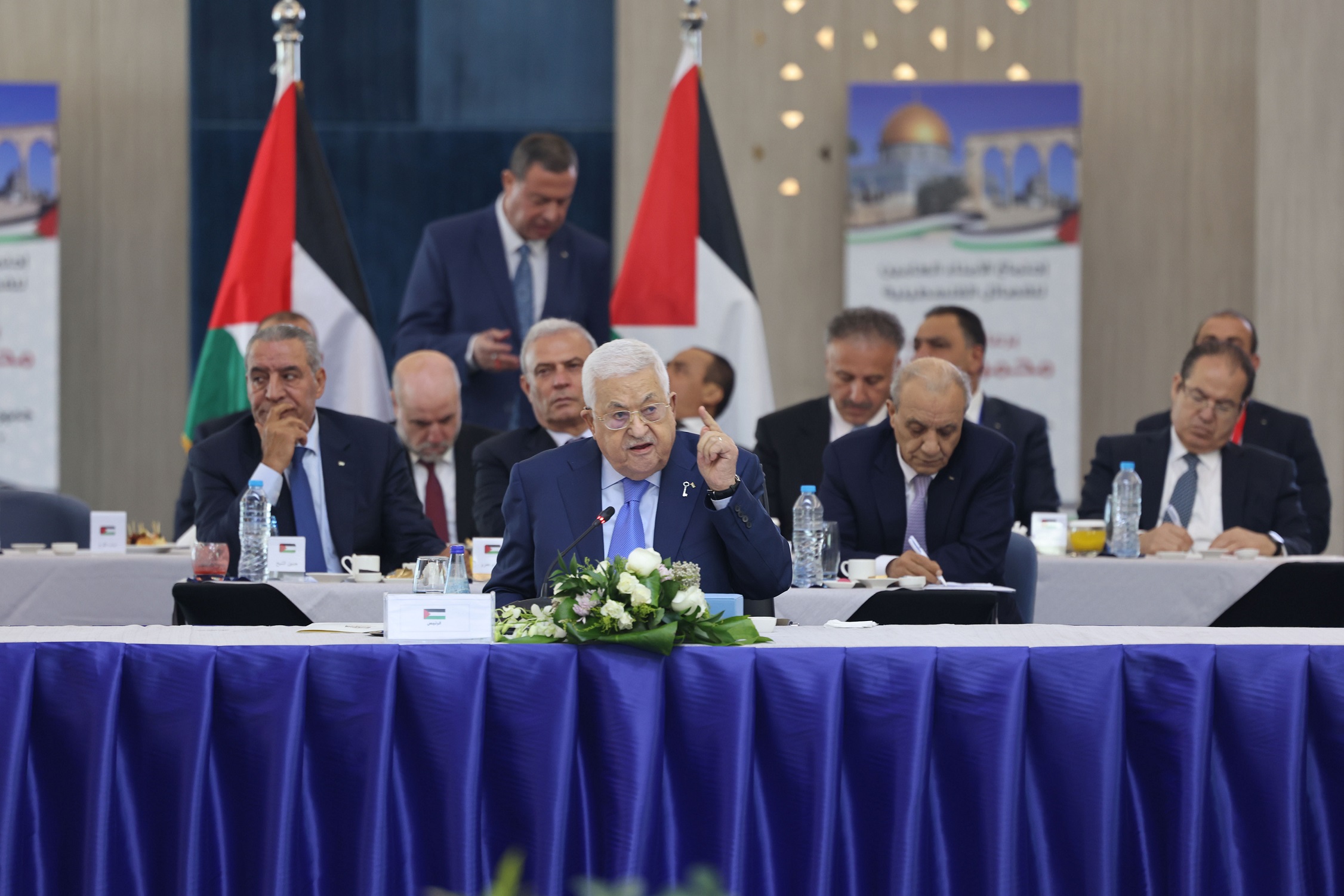Publications
INSS Insight No. 1750, August 20, 2023
The summit of the Palestinian factions in el-Alamein, Egypt, convened by Abu Mazen, was attended by the head of the Hamas Political Bureau and the leaders of most other factions. It was coordinated in advance with Hamas, which upon its conclusion, praised the amicable spirit and inclination toward agreement that prevailed throughout the event. In his concluding remarks, Abu Mazen announced the establishment of a follow-up committee in order to reach agreements for a reconciliation formula that would be acceptable to all, although no such formula has been reached within the individual organizations, and it is unclear whether any such intention toward a consensus exists. The summit was essentially an attempt to stop the erosion of the relevance of the Palestinian issue, especially in light of the policy of the current Israeli government in the West Bank and the regional moves promoted by the United States with Israel and Saudi Arabia. The Israeli government’s disregard for the renewed relations between the organizations in response to the regional moves might exact a heavy toll.
On July 30, 2023, representatives of Fatah, Hamas, and other Palestinian factions convened in the town of el-Alamein, Egypt, west of Alexandria, to discuss the current weakness of the Palestinians, to the point that the Palestinian issue is in danger of even further marginalization on the regional and international agendas. The singularity of the summit was that it was led, chaired, and concluded by Abu Mazen, and unlike other gatherings of the same forum, lasted only one day. In his concluding remarks, Abu Mazen announced, as had probably been agreed with Hamas beforehand, the establishment of a joint committee of all Palestinian factions, whose task would be to formulate agreements as a basis for reconciliation and pan-Palestinian unity. Ismail Haniyeh, head of the Hamas Political Bureau, noted that the atmosphere at the conference was agreeable and amicable. Other senior Hamas leaders, as well as those of other factions, expressed the same feeling. The fact that three organizations did not attend the conference – namely, the Popular Front – General Command, as-Sa’iqa, and Islamic Jihad, which boycotted it in response to the arrest of its operatives by the Palestinian Authority – did not prevent Hamas from participating. Rather, its participation was, inter alia, due to its commitment to Egypt, and its leaders merely called for the release of prisoners. The gathering was preceded by widescale diplomatic preparations on the part of Egypt and senior Fatah leaders, which included mustering the support of Arab states such as Qatar, Jordan, Saudi Arabia, and Algeria, Asian countries, including China, and Turkey and Russia. The endorsement of the summit by these countries persuaded the factions to participate and provided a certain degree of alternative legitimacy to the disappointing American legitimacy.
Through the conference, Abu Mazen sought to reach a shared intra-Palestinian understanding that would help arrest the evident erosion of the legitimacy of the Palestinian Authority, making it easier for the PA to cope with the unprecedented challenges it currently faces. From the economic perspective, the PA is approaching insolvency and bankruptcy. It has received much criticism in this regard, even from within its own ranks. Most of the criticism charges that the PA no longer represents the entire Palestinian people, and actually collaborates with Israel. Nonetheless, during and following the summit, Abu Mazen reiterated the requirements that other Palestinian organizations must meet in order to join the PLO: recognition of all the previous commitments and international resolutions it has accepted, as well as approval of the principles of common cause, government, law, and weapons. In other words, Abu Mazen has not waived his conditions for reconciliation. Ismail Haniyeh, on the other hand, showed no signs of willingness by Hamas to accept such demands.

The events in July – Abu Mazen’s visit to the Jenin refugee camp following the Israeli incursion (Operation Home and Garden), the renewal of Palestinian efforts to impose order in the Jenin region, Abu Mazen’s visit to Turkey, the meeting between Jibril Rajoub and Hamas leader Saleh al-Arouri in Istanbul on the eve of the visit – seem to be closely connected to Abu Mazen’s call to the factions to convene in Egypt. Contrary to the past, the summit was not attended by the heads of Egyptian military intelligence and lacked overarching Egyptian sponsorship. The link between all these events is the need for creating intra-Palestinian common ground that strengthens the Palestinian Authority’s legitimacy as the leadership empowered to cope with the unprecedented challenges it faces. These challenges include actions by the Israeli government, which have become a gamechanger in Israeli-Palestinian relations, on the one hand, and the formulation of a widescale United States-led move in the region, which includes possible normalization between Israel and Saudi Arabia, on the other hand.
Recent months have seen rising concern in the Palestinian Authority about the pressure exerted by the Israeli government, which has caused almost irreparable damage to its standing, due to the accelerated annexation policy in the West Bank – including the amendment of the Disengagement Law in the northern West Bank and the establishment of illegal settlements without any countermeasures by the IDF, construed as being consistent with the “Decision Plan” of the Minister in the Ministry of Defense, Bezalel Smotrich; the policy of National Security Minister Itamar Ben-Gvir, which is perceived as aggressive and hostile; rhetoric such as the “eradication of Huwara”; and questions raised by senior government ministers as to the justification for the very existence of the Palestinian Authority, or any Palestinian representation, for that matter. All the above reinforce the need for strengthening the public legitimacy of the PA. Emphasis on inter-organizational unity at a summit attended by the leaders of the main organizations was intended to address the expectations of the Palestinian public, and at the same time restore the desperately needed legitimacy of the PA.
As for Hamas, its involvement and the attendance of its most senior leadership at the conference alongside Abu Mazen were an indication of the common interests it shares with Fatah as well as Abu Mazen himself, in face of the emergent reality. Hamas, which strives to become an alternative to Fatah’s leadership within the Palestinian Authority, currently regards the PA as a body that must be preserved, since it ingrains an official and legitimate Palestinian presence on Palestinian territory. Hamas does not have an interest in bringing down the PA and returning to a direct confrontation with Israel without representation, as in the days preceding the Oslo Accords. Strengthening Hamas’s position by making clear, inter alia, that it enjoys an equal standing to that of Fatah, would help it maneuver between the various resistance organizations under its influence, in order to control the intensity of violent resistance, or even restrain it completely, according to the circumstances.

In parallel, the US administration has been conducting intensive negotiations with Saudi Arabia with the aim of strengthening the regional coalition against Iran and stabilizing anew American influence in the Middle East, and in this framework achieving Israeli-Saudi normalization. In a normalization agreement with Saudi Arabia, Israel would likely be required by the US administration to refrain from any further unilateral steps in the West Bank that might jeopardize the prospects for a future settlement with Palestinians based on the two-state solution; refrain from any moves toward annexation and the establishment of settlements and illegal outposts; and even gradually hand over Area C territories to the Palestinian Authority (as stipulated in the Oslo Accords). A positive Israeli response to the US pressure in this respect would return the Israeli-Palestinian arena to its context prior to the presentation of the Trump plan and even strengthen the PA’s standing. The Palestinians are not part of the move led by the administration, in part due to the PA’s weakened domestic and international legitimacy. However, it seems that the attempt to display inter-organizational unity was meant to convey a message of national representation to the parties in the region and beyond that cannot be overlooked.
Did this conference have any significance different from that of other inter-organizational gatherings, which did not yield any progress toward unity? In fact, the summit should not be regarded as a move toward reconciliation, but rather as a display of rapprochement and coordination between Fatah and Hamas. The organizations are aware that while the ideological gaps preventing reconciliation cannot be bridged, they must find a way to deal with the pressing issues of the moment, which might nullify the Palestinian issue in the regional and international arena. Therefore, they reached a joint decision, apparently under Egyptian pressure, to convey a positive message to the public. The understandings reached concern management of the schism within the Palestinian arena, rather than a mechanism to resolve it.
In any case, and particularly in light of the continuing deterioration of his status, Abu Mazen can still claim an achievement. He led, chaired, and concluded the conference, called upon the other organizations to participate, and refused to release prisoners, while all the organizations, including Hamas, accepted his leadership. Presumably the summit would not have earned the support of states had not it not been for the apparent cooperation with Hamas. The impression created is that agreements and understandings between Fatah and Hamas are sufficient to bind all Palestinian factions.
A display of unity and the adoption of non-violent resistance that, as reported by the Palestinian media, was demanded by Abu Mazen from Haniyeh at their meeting in Istanbul would make it easier for the PA President to persuade the US administration to increase its pressure on Israel, which has no interest in reaching any understandings with the Palestinians. As for Israel, the lesson is that much like during the Trump era, threats that are perceived as highly serious to the Palestinian cause bring about rapprochement rather than alienation between the various rival factions. Possible linkage between moves in the Israeli-Palestinian arena and the initiative for normalization between Israel and Saudi Arabia, and particularly moves taken by Israel in response to a US demand to prevent the end to any possible future progress toward the two-state solution, might indeed threaten the integrity of the government of Israel. However, disregarding the developments within the Palestinian arena, and particularly the renewed relations among its leading organizations in response to the regional moves, may exact a much heavier toll.



